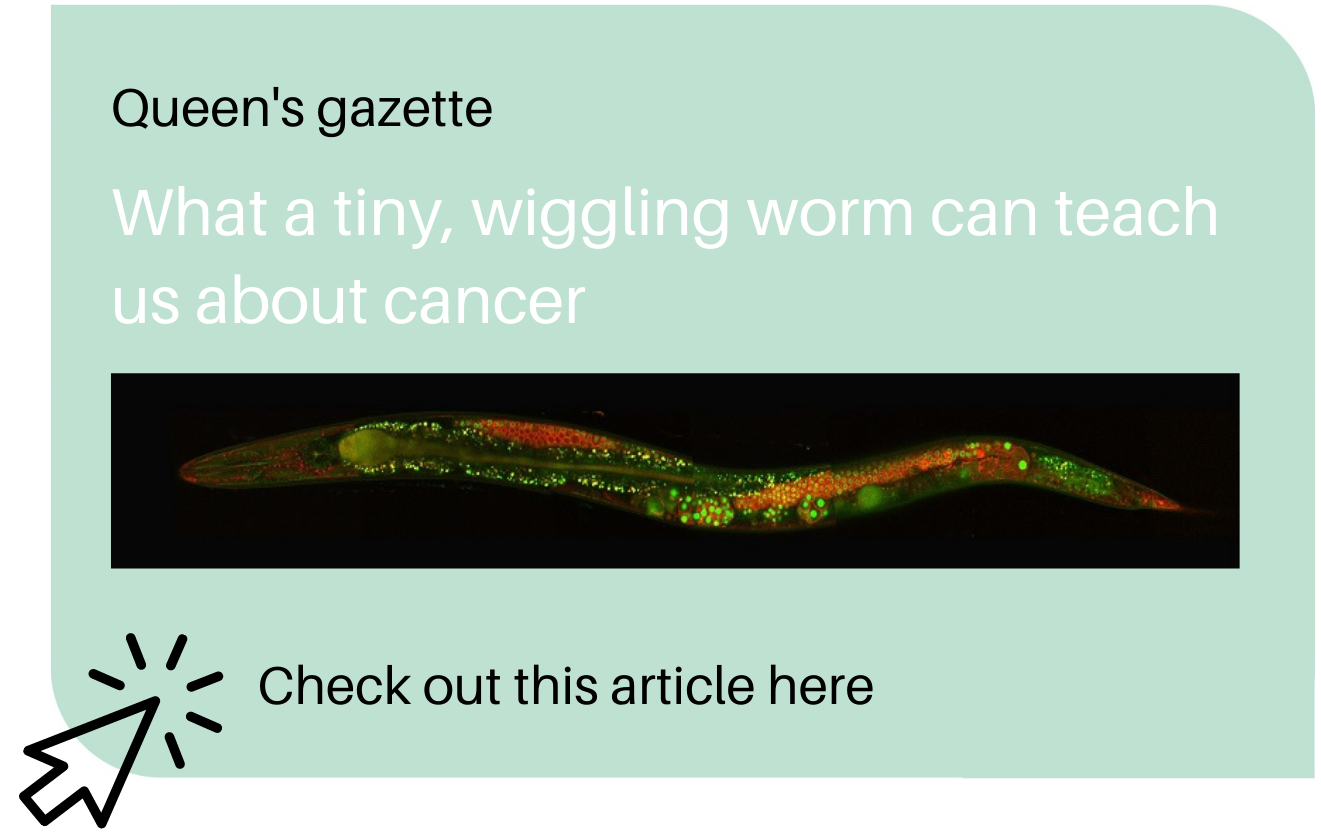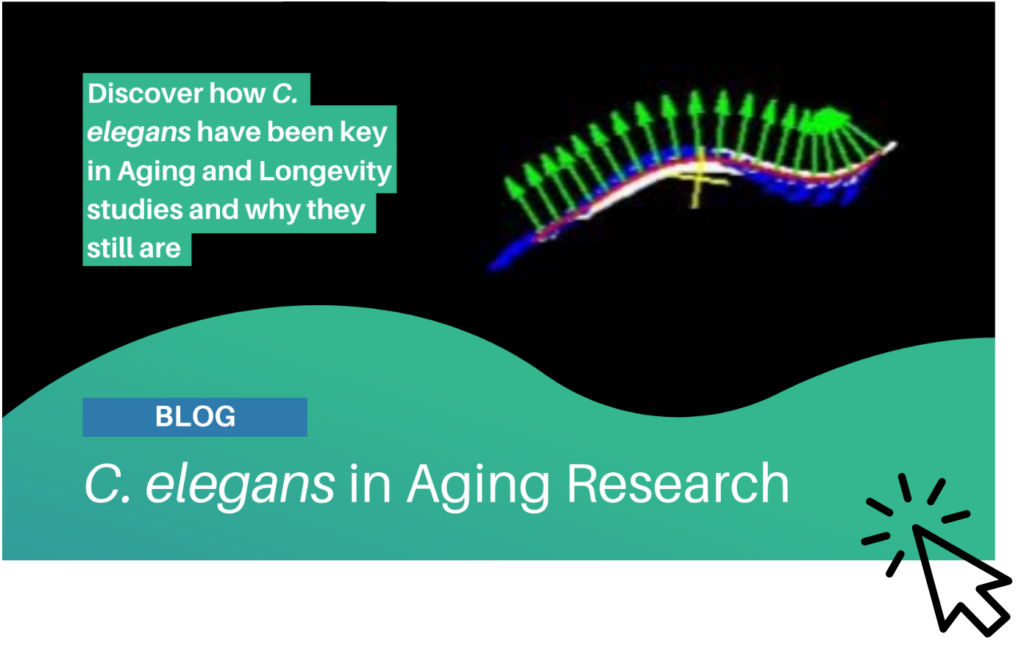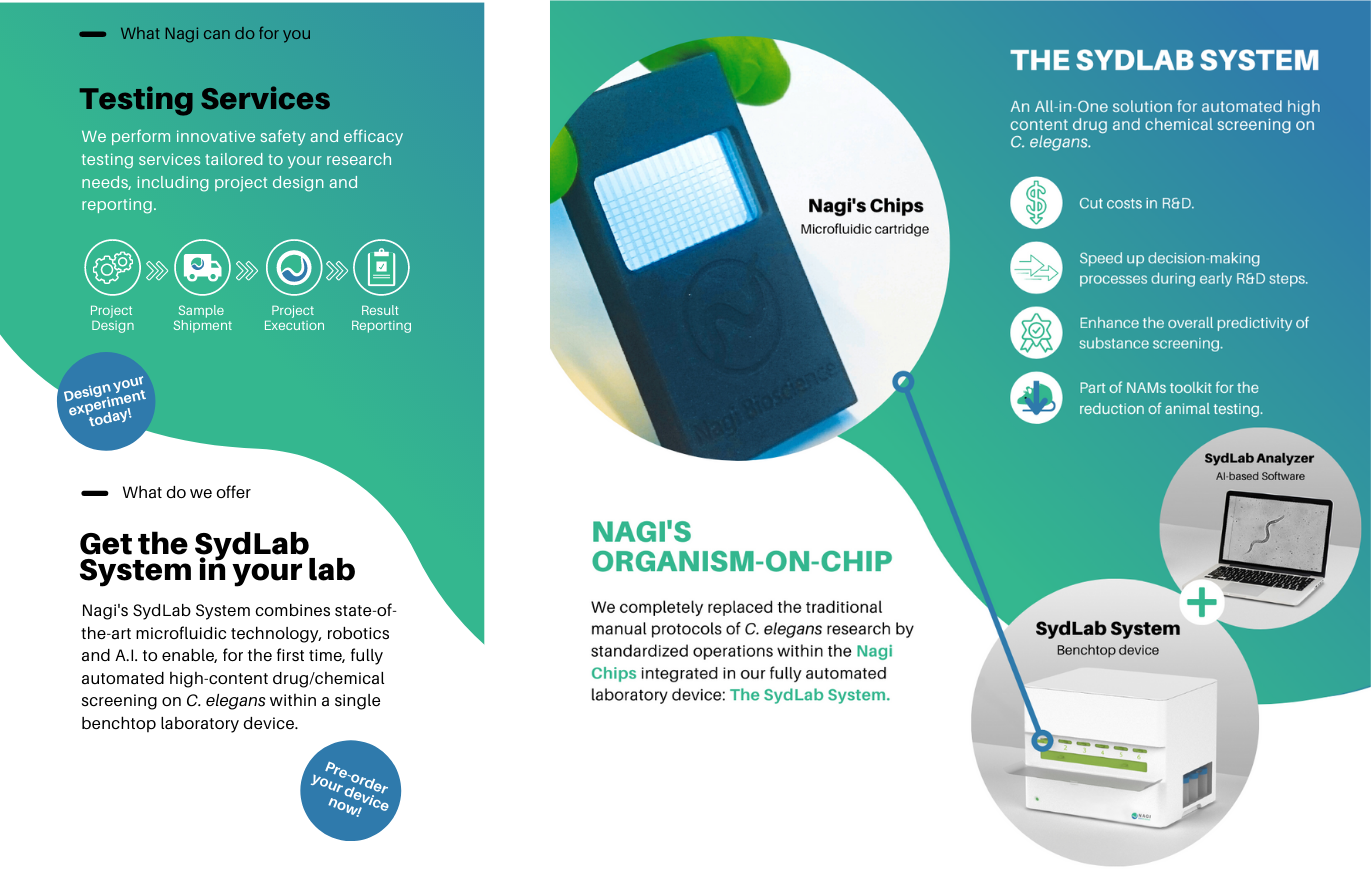
How a tiny worm is helping to reveal the mystery of human tumors’ formation and the development of cancer drug candidates
During the past decades, the roundworm C. elegans has been in the center of multiple biological research discoveries. Today, we are going to go through how C. elegans are currently used for cancer research studies.
From cell division studies to drug candidates
C. elegans has been an emerging biological model for studies investigating cancer progression in the past years since the gene families of this nematode count with fewer members and, thereupon, it considerably reduces genetic redundancy (Kyriakakis, Markaki, & Tavernarakis, 2014). Deregulation of energy metabolism, stem cell reprogramming and host-microflora interactions are some of the multiple cancer research lines that use our favorite nematode.
“We study how the worm develops and apply this knowledge to understanding what goes wrong during cell division that causes cancer. We are also interested in the mechanisms behind how tumor cells invade surrounding tissues and move to other locations, creating new tumors. If we can block this mechanism, we can prevent metastasis.” explains Dr. Chin-Sang, developmental biologist at Queen’s University.
Although C. elegans don’t develop cancer in the same way as humans do, they count with tumor suppressor genes, which makes them an ideal biological model to investigate the underlying mechanisms of mutations that lead to defective cell division and movement. Therefore, understanding said mutations and genetic predispositions blocking the tumor suppressor genes is key in the race against cancer.
But this is not all. Our favorite roundworms also are ideal for testing drug candidates to slow down cell division and cell movement before proceeding to testing them in humans.


Aging, longevity and cancer – How C. elegans interconnect studies
The biological model Caenorhabditis elegans has been fundamental in aging and longevity research allowing groundbreaking findings about human lifespan. The Insulin/Insulin-like Growth Factor (IGF-1) signaling pathway, the very first life-extension pathway ever defined, was discovered in C. elegans and it was later confirmed as a key regulator of lifespan and aging processes across the animal kingdom, including mammals.
Nowadays, one of the research lines followed in cancer studies is precisely the Insulin signaling pathway and its role in the molecular basis of tumorigenesis, since exacerbated insulin signaling can originate tumors. With such research advances, the development of new drugs regulating this pathway and cell proliferation is estimated to progressively scalate in the next decades, improving the quality of life of millions of people.
Interested in more? Check out this blog post

In 2020, 18.1 million cancer cases were estimated worldwide, being breast and lung cancer the most common types. The global cancer therapeutics market reached a value of $158 billion in 2020 and it is forecasted to grow until 2027 at a Compound Annual Growth Rate (CAGR) of 9,15%. The reason for such growth is not only the increase in cancer prevalence, but what this fosters. Due to the increase in cancer cases worldwide, governments are investing more in awareness campaigns and research programs, while private key players are substantially strengthening their R&D portfolio of new drugs and therapies against cancer.
Nagi Bioscience and the future of biological testing
In need of a rapid, cost-efficient and sustainable way to perform your bioassays while using ethical testing methods? At Nagi Bioscience we developed the first Organism-on-Chip technology fully automating high-content drug and chemical screening on the highly recognized biological model C. elegans.

